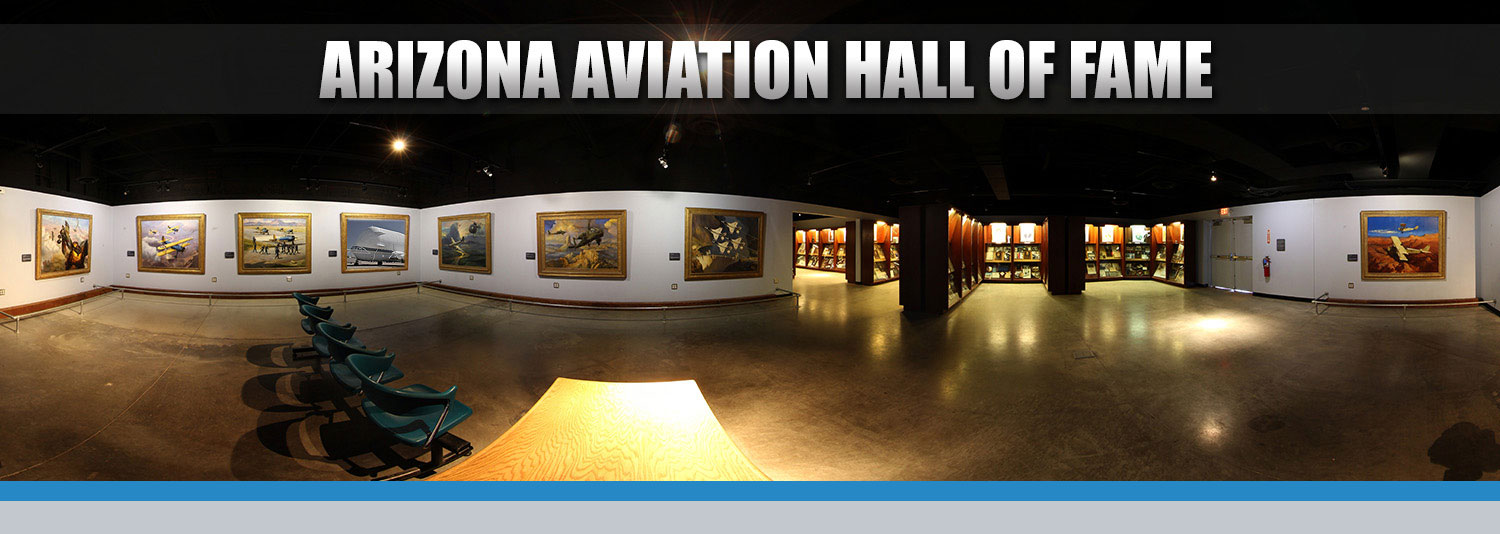WILLIAM S. UNDERWOOD
Enshrined 2003
A WWII bomber pilot, William "Bill" Underwood struck the enemy's homeland hard.
Born and raised in Nogales, Arizona, and one of five brothers who served in the armed forces in WWII, Underwood joined the Army Air Corps in 1939 at the age of 18. He had just graduated from high school and received initial training as a radio operator. After Pearl Harbor, he transferred to flight school and won his wings in 1943. He soon became a multi-engine instructor pilot on B-24s at Davis-Monthan AFB.
Reassigned to the 19th Bomb Group, he flew 28 missions against Japan from Guam as a B-29 aircraft commander and flight leader. He participated in the first firebombing attacks on Tokyo, harrowing raids that required flying 1,500 miles over water to the target and back. He and his crew made more than one forced landing on Iwo Jima. Among his many combat decorations are the Distinguished Flying Cross, Air Medal, Bronze Star and other theater ribbons.
Bill Underwood flew his last bombing mission a few days after the atomic blast at Hiroshima. Returning to the states, he helped form new B-29 groups, including the 43rd Bomb Wing at Davis-Monthan AFB. Later at the Pentagon he managed important projects involving nuclear development and testing, as well as new studies relating to low intensity warfare. For the 7th Air Force, he directed a number of personnel programs at all air bases in Vietnam and Thailand.
Concluding 33 years of dedication and service to his country, he retired in 1972 as an Air Force colonel. Having served on the faculty of the Air Command and Staff College, he has maintained his interest in education by accepting leadership roles in local youth-oriented learning activities. Indeed, Bill Underwood's illustrious military career and his support of worthy community causes continue to reflect great credit on himself, his state and the nation.
